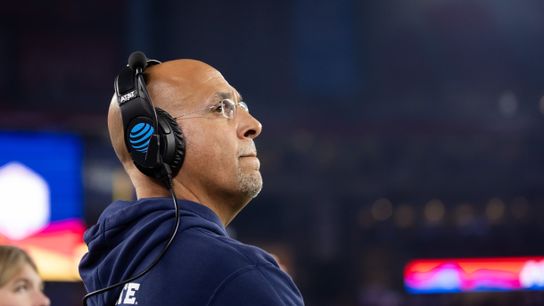Though it's rarely said in as many words, I believe everyone's dissatisfaction with the current system boils down to one fatal flaw: It's dishonest.
The NCAA (and the schools that write its rulebook) believes college athletes are not employees and the public, the media and the courts no longer believes college athletes should be bound to a school that does not employ them, and so we have the transfer portal.
And yet the public, the courts and even the NCAA acknowledge college athletes have economic value beyond their scholarships, and so we have NIL.
Combine the two together, and you get a perverse system that incentives players to enter the portal after every season and coaches to value transfers over high school prospects.
Usage of the word "unsustainable" has skyrocketed as coaches and administrators grasp for a word to describe this system. I quibble with that, to a point. Partly because I believe the word they're really looking for is "dishonest," but also because this is the system we have, and until a governing body with sufficient power to change it -- whether it be Congress, the NCAA, the Supreme Court, the National Labor Relations Board or someone else -- comes along and changes it, this system will be sustained for the foreseeable future.
But with enough comments like the two we've seen lately, perhaps this unsustainable system won't have to be sustained much longer.
“I also think that ultimately, whether it’s in the next three years or next five years or next two years, there’s going to be some form of revenue sharing or collective bargaining agreement (with the players),” Penn State head coach James Franklin told AP on Thursday. “That’s going to happen. I think that’s inevitable."
“It’s just like the NFL. That’s where we are headed," North Carolina's Mack Brown told Sports Illustrated last week. "We will never see amateurism again. It’s gone."
From that piece:
While begrudgingly acknowledging amateurism in college athletics is gone, Brown believes it is time for NCAA Division I to divide, for athletes to be compensated as part of a regulated system featuring a “salary cap,” and for college football to operate under a supervisor or commissioner, working within the structure of the College Football Playoff.
If the NCAA recognized its athletes as employees, it could then sign players to contracts. (Mike Gundy suggested this last month.) Players could then be outright cut, but they would also be aware of their leverage to opt out of their deal with their current school to enter the portal, just like in the NFL. A players association could negotiate a collective bargaining agreement within each conference, where players would receive a predetermined cut from their league's revenue.
NIL would still exist, in the same way that Patrick Mahomes supplements $450 million contract with an array of endorsements, but plenty of schools would fold-in their collective to eliminate the sometimes awkward dynamic of an athletics department fighting with its own boosters for donations.
Though the act would be akin to swallowing cyanide to many within the system, Franklin believes the end result would be satisfying in the long run.
“I think most people would prefer that than the current model because I think it’s better for the student-athletes because they’re going to be able to get contracts and know what they’re signing up for," Franklin said. "And I think for the schools as well, I think there’s going to be value in knowing what you’re dealing with.”
Such a system would be at times cold, icky, gross and cruel. But it would also be honest.
"I hate it," Brown said. “Now, we are a farm league for the NFL with many NFL programs. We are headed toward an NFL model.”
